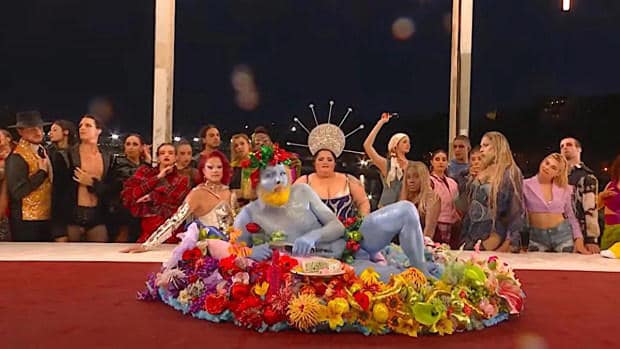The Paris Olympics opening ceremony has sparked ongoing controversy. Conservative figures around the world have criticized the event, while President Emmanuel Macron and its creators staunchly defend it.
The Friday parade along the River Seine marked the first time a summer Games opening ceremony was held outside a stadium. The event included celebrations of same-sex love, drag queens, and a scene that some critics argue parodied Jesus Christ's Last Supper.
French theatre director Thomas Jolly, who created the ceremony, described it as a celebration of "tolerance and love," and Macron declared it made France "extremely proud." Despite these endorsements, the controversy extends beyond France, with a French lesbian activist involved in the ceremony filing a complaint over cyberbullying and death threats.
Despite these clarifications, the debate continues online, with some still expressing discomfort over the performance. The controversy has been further fueled by the Twitter account Visegrád 24 (@visegrad24), which described the act as “Gratuitous blasphemy at the Olympics opening ceremony in Paris.” They also pointed out that now deleted France TV referred to the scene as “la Cène,” the French term for the Last Supper, seemingly confirming the “blasphemous” aspect of the portrayal.

A particularly contentious scene featured dancers and drag queens in a tableau resembling the Last Supper. Organizers have claimed this was meant to represent a pagan feast led by the Greek god Dionysus and not intended to offend. Jolly has denied any deliberate reference to the Last Supper.
Barbara Butch, a performer in the controversial scene, reported severe cyber harassment and legal threats. Her lawyer, Audrey Msellati, revealed that Butch had received death threats and faced anti-Semitic, homophobic, sexist, and fat-shaming abuse.
Within France, the ceremony has faced criticism from far-right figures such as Marion Marechal and Eric Zemmour, as well as Italy's Deputy Prime Minister Matteo Salvini. The French Bishops' Conference has expressed regret over the "derision and mockery of Christianity" in the ceremony.
"I'm very open-minded but I thought what they did was a disgrace," Republican Donald Trump, US president from 2017-2021 and frontrunner to regain the White House in this year's elections, told Fox News.
Turkey's President Recep Tayyip Erdogan, who hails from an Islamic-rooted party, condemned the opening ceremony for "immorality against all Christians" and said he would call Pope Francis to discuss the controversy.
"The Olympic Games have been used as a tool of perversion that corrupts human nature," said Erdogan.
The president said he had been invited by Macron, but a warning from his 13-year-old granddaughter, who "showed me images on Instagram", persuaded him to pull out.
The X account of Iran's supreme leader Ayatollah Ali Khamenei, who leads the theocratic Islamic republic, condemned "insults" he said were made against Christianity at the opening.
Despite the backlash, the French far-right National Rally, led by Marine Le Pen, has largely avoided direct involvement in the controversy.
Olympics organizing committee spokeswoman Anne Descamps defended the artistic team, condemning the cyberbullying and asserting that the scene was intended to depict a pagan feast, not intended to offend. She noted that the televised version of the ceremony faced criticism for missing key moments, though the International Olympic Committee’s filming subsidiary, Olympic Broadcasting Services, denied any significant failure, citing challenges related to rain and the scale of the event.

